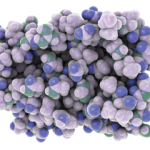Demystifying difficult, often neglected symptoms of rheumatic diseases
WASHINGTON, D.C.—Patients with rheumatic diseases live with an array of symptoms that affect their daily functioning. Although joint pain is the most recognized symptom, other symptoms, such as fatigue, brain fog, anxiety and depression, may have an equal—and sometimes greater—impact on a patient’s quality of life.
A panel of experts comprising patient advocates with experiential knowledge of these symptoms, as well as clinicians and researchers with extensive knowledge of treating patients with rheumatic diseases, met on Nov. 16, during ACR Convergence 2024. In the session titled It’s Not Just Joint Pain: Demystifying Difficult, Often Neglected Symptoms of Rheumatic Diseases, these experts offered their perspectives on the impact of and solutions to these symptoms, which affect the physical, cognitive and emotional health of patients with rheumatic diseases.
Fatigue
Fatigue was among the symptoms given the most attention. Eileen Davidson, a patient with rheumatoid arthritis (RA), a patient advocate from Vancouver and member of the Arthritis Research Canada Patient Advisory Board moderated the session. She called fatigue the most debilitating symptom of living with a rheumatic disease and likened it to the feeling of walking around with the flu 24/7.
Ayman Askary, MD, a consultant rheumatologist at the Robert Jones and Agnes Hunt Orthopedic Hospital, Oswestry, U.K., who has long experience working with patients with rheumatic diseases, called fatigue a terrible illness that interferes with a person’s ability to work and take care of oneself, which in turn affects independence and dignity.
Despite its prevalence and significant impact, the cause of fatigue in rheumatic diseases is not fully understood but is undoubtedly multifactorial. Dr. Askary describes the fatigue he sees in most of his patients as idiopathic, or fatigue of an unknown cause. To reach that diagnosis, he takes a practical approach to rule out potential causes. First, he looks at whether the rheumatic disease is active, then he looks at comorbid conditions and he also considers medications, such as statins, aromatase inhibitors and methotrexate. These treatments can be associated with fatigue. He noted that, as a clinician, it’s always important to determine if fatigue is related to starting a new medication because patients on a new medication that is working to reduce swelling and improve pain may not know that a downside may be fatigue.
Daniel Whibley, PhD, assistant professor, physical medicine and rehabilitation at the University of Michigan, Ann Arbor, emphasized that persistent fatigue still occurs even when active disease is managed and inflammation is reduced. Other factors to consider include high levels of depression, cardiovascular risk factors (e.g., high blood pressure or history of stroke) and low levels of physical activity, which are associated with presenting with high levels of fatigue. Although sleep problems are closely related to fatigue, he emphasized that the two are not the same thing. Fatigue doesn’t resolve after sleep.
